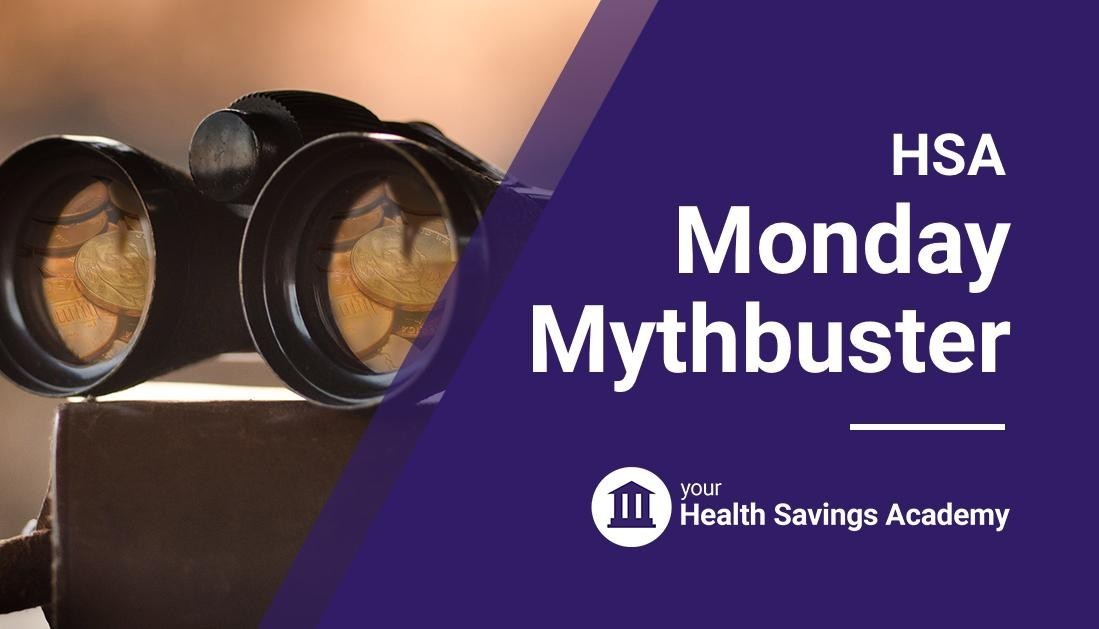
Death and Taxes Are Inevitable, but How Do They Affect Your Account?
You will die eventually. And perhaps you'll have a balance in your Health Savings Account when you do. What then?
We don't like to think about death. But those among us who understand the emotional and financial effect that our death will have on those whom we leave behind plan properly for our exit from this earth.
How should a Health Savings Account owner plan for the inevitable? Fortunately, federal tax law provides clear parameters in which we can operate.
Health Savings Accounts Are Lifetime Accounts
Other common medical reimbursement accounts are annual programs that generally don't afford participants the opportunity to incorporate the program into their estate planning. For example, Health FSAs are annual reimbursement accounts sponsored by employers and available only to employees. When an employee dies, the employment relationship is severed. The family may be entitled to short-term continuation of the Health FSA through COBRA, but that opportunity is limited and occurs outside the estate.
Health Reimbursement Arrangements are employer-sponsored programs as well. When the employee dies, family members enrolled on the medical plan integrated with the HRA may be able to exercise COBRA right to temporarily continue to benefit from the coverage. But the HRA, like the Health FSA, offers only limited continuation at best and occurs outside the estate.
In contrast, Health Savings Accounts are trusts without an expiration date (even if the owner has one). Once established, the Health Savings Account lives with no plan years or employer sponsorship (though for most owners, the company offers - or offered - the underlying medical plan and integrates its preferred account administrator into the program). It is a financial asset like a checking account, Individual Retirement Arrangement, certificate of deposit, primary residence, or a Harley. As with these other assets, the owner either names a beneficiary or creates an estate plan to direct the ownership of the asset after her death.
Leaving Your Account to Your Spouse
The most tax-efficient option is to name a spouse as beneficiary. In this case, the balance passes to the spouse in full, without tax implications. The spouse needn't be eligible to open a Health Savings Account at the time of transfer. With the proper paperwork, the decedent's account balance passes to the spouse. The spouse then enjoys the same privilege that his late spouse enjoyed. He can reimburse his own and his tax dependents' future qualified expenses tax-free. If he remarries, he can reimburse that spouse's qualified expenses as well (though only those expenses with dates of service on or after the wedding day).
This transfer is far simpler than the process for moving an inherited Individual Retirement Arrangement, or IRA, and managing it thereafter. There are no Required Minimum Distributions or other tax-complicating factors in the initial transfer of a Health Savings Account or longer term obligations outside the normal management of the account.
Leaving Your Account to Someone Else
Health Savings Account owners aren't limited to passing their balance to a spouse. They can designate any person or entity as the beneficiary. If you leave the balance to someone other than a spouse, the money loses its preferred tax status. It's distributed to the beneficiary, who then incurs a potential tax liability.
Example 1: You name your three children as equal beneficiaries of your Health Savings Account. You die with a balance of $30,000, so each child inherits $10,000. Your oldest child has a 22% marginal tax rate ($2,200 taxes due), your middle child is in the 12% bracket ($1,200 owed to the Internal Revenue Service), and your youngest child is a student with low income and no tax liability. Each beneficiary receives an equal amount, though their personal tax liability is different. There are no restrictions on how they save or spend the money, not do they incur any additional tax liability (beyond income, capital gains, sales, and other taxes common to all such transactions) as they allocate their respective money.
Example 2: You name your alma mater's scholarship fund as the beneficiary. The full $30,000 passes to the school. The school doesn't pay federal income taxes, so the full amount goes to the school. It can spend the funds within the guard rails established for the scholarship fund generally.
Dying without a Beneficiary
This is the worst outcome. To minimize this likelihood, many administrators require Health Savings Account owners to designate a beneficiary as a condition of opening the account. But this process isn't fool proof. Also, an owner can remove the beneficiary from the account and fail to appoint a new one.
Refer to the estate laws in your state to determine the disposition of an account without a named beneficiary.
Better yet, review your beneficiary designation annually to ensure that your assets will flow to the beneficiary of your choice. That's the easiest way to ensure that your wishes are honored.
The Bottom Line
Like many activities in life, naming a beneficiary is very easy to do. But it's also very easy not to do. Best advice is from Nike: Just do it. And as you review your Health Savings Account beneficiary, consider checking the beneficiaries of your life-insurance policies (including your policy at work), your 401(k), and any other accounts or benefits whose balances can bypass your estate or receive tax advantages when transferred after your death.
This transfer is far simpler than the process for moving an inherited Individual Retirement Arrangement, or IRA, and managing it thereafter . There are no Required Minimum Distributions or other tax-complicating factors in the initial transfer of a Health Savings Account or longer term obligations outside the normal management of the account.
#HSAMondayMythbuster #HSAWednesdayWidsom #HSA #HealthSavingsAccount #TaxPerfect #yourHSAcademy #yourHealthSavingsAcademy #HSAunited